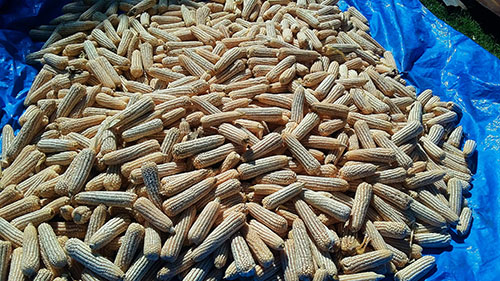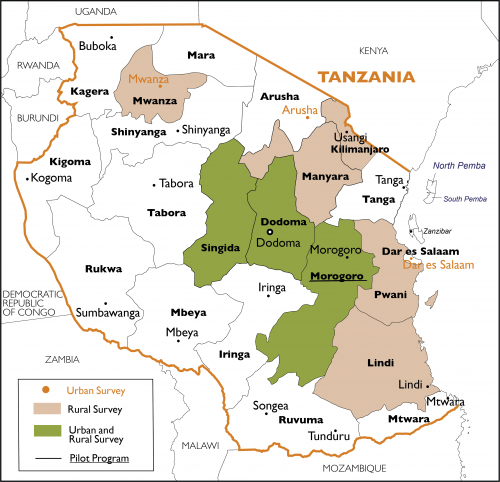ASPIRES Project
 The Agriculture Sector Policy and Institutional Reforms Strengthening (ASPIRES) project works to accelerate Tanzania’s adoption of more effective policies and programs in order to drive broad-based agricultural sector growth, improve household food security and nutrition, and reduce poverty.
The Agriculture Sector Policy and Institutional Reforms Strengthening (ASPIRES) project works to accelerate Tanzania’s adoption of more effective policies and programs in order to drive broad-based agricultural sector growth, improve household food security and nutrition, and reduce poverty.
ASPIRES is organized around four areas of action: collaborative research; policy advisory and coordination; capacity building; and policy advocacy and communication. Jointly, these aim to reduce the policy evidence gap and establish a foundation for more inclusive, transparent and sustainable processes of policy formulation.
Key Features of ASPIRES
- Emphasis on policy engagement for policy change, supported by collaborative applied policy research.
ASPIRES works with the Policy Analysis Group (PAG) to facilitate regular policy dialogue; consults regularly with policy makers in and beyond MALF; establishes stakeholder working groups for many of its studies, and uses these to guide its research and policy engagement; supports the Annual National Agricultural Policy Conference; and engages Sokoine University of Agriculture and other partners in applied research. - Demand-driven research on specific policy topics, supported by longer-term research on fundamental forces of change.
ASPIRES responds to direct GOT requests, for example in studies of reforms to agricultural commodity board reforms and the Local Government Finance Act. At the same time, it studies fundamental forces of change such as changing land ownership patterns and changing diets, both of which drive profound changes in the country’s agrifood system and broader economy. Together, demand-driven research paired with more fundamental research, and wedded to policy engagement, help drive improved policy making. - Support to the piloting of selected interventions that emerge from its research and policy engagement. For example, ASPIRES is coordinating with PO-RALG and others to support the piloting of an e-pay system for payment of local taxes, a recommendation that emerged from an earlier MSU study of tax practice in rural areas.
- Commitment to building human and institutional capacity for policy research and engagement. It does this through regular formal training, in-service training through collaborative research, and institutional support, for example to the creation and strengthening of a Policy Resource Center and a Market Intelligence Unit within MALF.

Photo: Milu Muyanga


